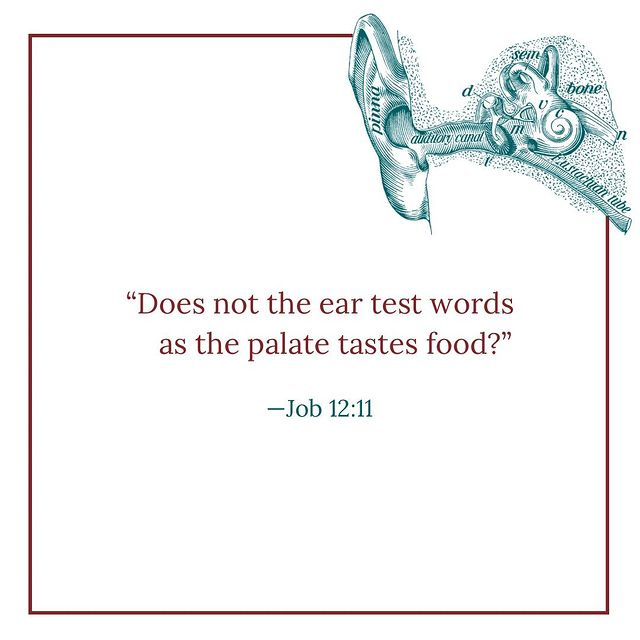by S.D.G. Morgan
Can it be dangerous to your soul to write Christian books?
C.S. Lewis thought so.
During the Second World War, C.S. Lewis had been an important voice encouraging a beleaguered nation through his BBC radio broadcasts (which would later be gathered into Mere Christianity). In between this work and his day job, he’d also written the classic imaginative masterwork, Screwtape Letters.
Yet only a year afterward, C.S. Lewis wrote to Dorothy Sayers:
"My own frequent uneasiness [at writing Christian books] comes from another source—the fact that apologetic work is so dangerous to one's own faith. A doctrine never seems dimmer to me than when I have just successfully defended it."
I resonated with this quote the moment I read it many years ago. It shined a light on a truth I’d often experienced but never heard described.
In one sense, this inverse law of inspiration still concerns me as much as it ever has, but in another, to see that Lewis shared this experience has lifted a burden off of me.
In high school, I was one American amongst a bunch of British teens who demanded I not only be an ambassador for every aspect of 1990s America but that I also had to defend my faith daily against routine poking, prodding, and bullying. It left me very intellectually skilled in defending Christianity, but while that growth was a gift that I use often, the over-exercise of that gift always leaves me dry, frustrated, and dim.
That always confused me until one day following a long run after one of those kinds of interactions, I realized the run and the conversation had the same draining effect. There's just always a certain exhaustion after exertion.
It’s so logical, how had I missed it? Exhaustion follows exertion.
The mind, the spirit, and the body are connected. We know this theologically and yet sometimes we forget it in practice. There's just always a certain exhaustion after exertion.
As I writer, I experience the exact same issue. When I use my creativity too intensely in one area, I find it hard to turn around and instantly write. There's got to sort of be a fallow period of rest.
It’s been said truly that creativity is not a gold mine, a finite resource that must be jealously guarded but instead a mentality, a viewpoint and a muscle that strengthens the more you use it. This is emphatically true. You can’t run out of creativity, but you can temporarily exhaust it. If creativity is like a mental muscle, then what happens when you stretch a physical muscle?
As a stay-at-home dad, I naively hoped there’d be plenty of time for writing (all the homeschool moms and moms of little just smiled really big and laughed a little in their heads after reading that sentence). Being a stay-at-home dad is by far the most exhausting job I’ve ever had. But what’s worse is that in the little time I have, my creative batteries are corroded, dim, and rusty.
In 1945, C.S. Lewis addressed a gathering of Welsh Anglican priests with a very similar argument that he addressed to Dorothy Sayers:
“No doctrine of that faith seems to me so spectral, so unreal as the one that I have just successfully defended in a public debate.”
Spectral, that’s a good word for it. Other authors, artists, and musicians can freely disagree with me, but speaking personally, I find I am never more dull to beauty, dimmed to awe, and just crusty and dry than after a long period of creativity.
My writing process is very similar to dreaming. It takes a long runway of preparation before I can settle in and get started. And then my mind slowly sinks into a different state and my focus shifts and then I almost watch my own creativity, just as I watch my own dreams (though of course I am intimately involved with both).
But when I wake up from a good sleep, I feel rested, when I “wake up” from a bout of creativity, I feel emotionally exhausted, even fragile. It’s much more like my body after a long run.
In Gina Dalfonzo’s book about the relationship between C.S. Lewis and Dorothy Sayers, Dorothy and Jack she records Sayers’ response to the conundrum Lewis posed.
“Referring to his feeling that ‘A doctrine never seems dimmer to me than when I have just successfully defended it,’ [Dorothy Sayers] whimsically suggested that the problem might be ‘You are tired. Having united yourself with the doctrine—you hope fruitfully—you are worried by its plaintive cry: “But do you still love me?” Reassure it courteously, and go to sleep.’”
I think Sayers is exactly correct. Tiredness is the real issue.
Take, for example, Elijah. Moments after calling down fire from heaven in just about the most stunning defense-of-the-faith display imaginable, Elijah is dim, despairing, and even suicidal. How is that possible?
God knows the reason why.
His first (though not final) response to Elijah is: “You’re tired. Get some sleep.”
In Practicing the Way, John Mark Comer describes this exhaustion as a spiritual truth that should be anticipated and incorporated into one’s spiritual (and writing) disciplines.
The answer, Comer says, is a rest.
“Let me say it again: Following Jesus is not about doing more, but doing less. It’s tempting to make your Rule of Life a list of things to do—and that’s not all bad. But for most of us, it’s just as important, if not more so, to focus on what we’re not going to do, to build margin into the architecture of our lives. Some teachers separate practices of “engagement” (disciplines of doing like justice, worship, study, and so on) from practices of “abstinence” (disciplines of not doing like Sabbath, silence, fasting, and so on). In certain cultural contexts, practices of engagement are necessary to break people out of lethargy and laziness. But if, like me, you live in a city, have a young family and a demanding job, and are constantly fighting off hurry—then practices of abstinence become the need of the hour. Take out more than you put in.”
So if you’ve just worked at something exhausting, then by all means take a break!
August 31–September 2: Bandersnatch Books booth at Matthews Alive Festival.
September 10: Red Rex release (preorders are open!)
September 20–21: Bandersnatch Books at the Embodied Faith Symposium at Gordon-Conwell Seminary, Charlotte.
November: Above, Not Up release (preorders open in September)
What are some of your favorite words as an author and reader?
Share them with us in the comments below!
And don’t forget to follow Bandersnatch Books on LinkedIn, Instagram or Facebook also!












I get this! It’s a reassuring reminder after a summer of mental pouring out—makes sense why I haven’t had the bandwidth to write.
Writing quotes....thanks for asking. I recently responded to a thread on Notes on Substack re: poets mentioning politics then went digging for this quote--it rings true right now.
“Politics can be the graveyard of the poet. And only poetry can be his resurrection.” Langston Hughes (1964)